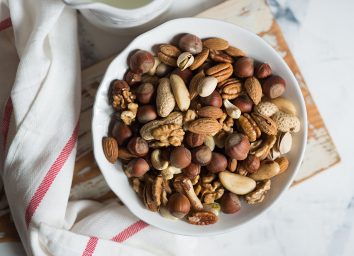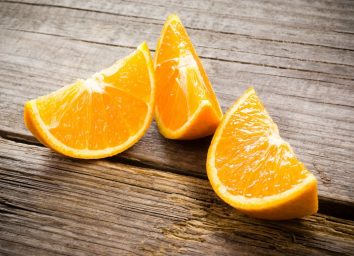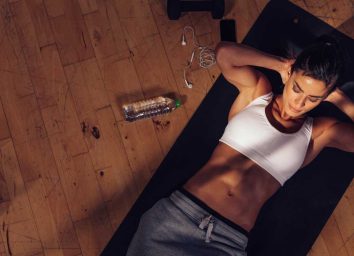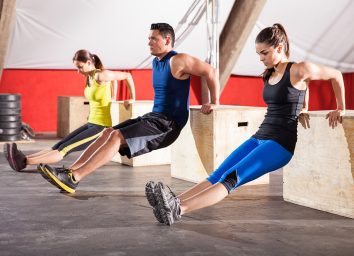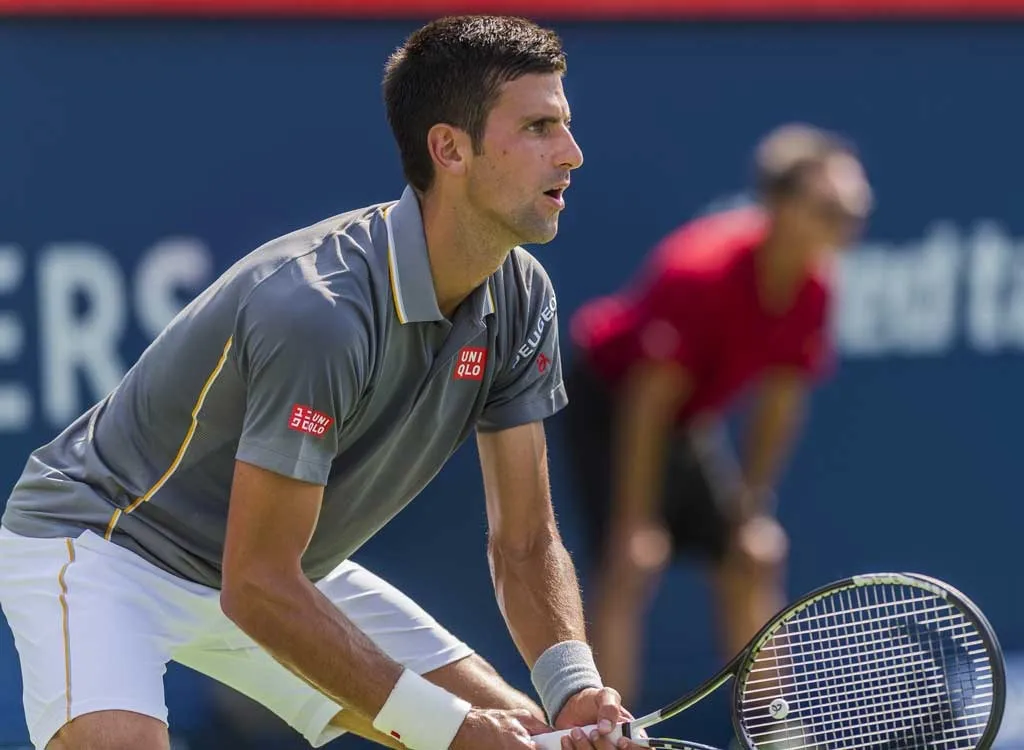
A lot of practice. Nerves of steel. And, if you're Novak Djokovic, a strict gluten-free diet that he says has played a major role in helping him roll to 13 career Grand Slam titles over the course of his career. After fighting back from an elbow injury last year and suffering through a rocky season—last month he lost to an unseeded opponent at the French Open—Djokovic just emerged victorious (for the fourth time!) at Wimbledon, beating Kevin Anderson in straight sets.
Here, in an exclusive Eat This, Not That! adaptation from his book Serve to Win, Djokovic reveals what he eats during a tournament that always gives him a competitive edge.
Start Drinking in the Morning
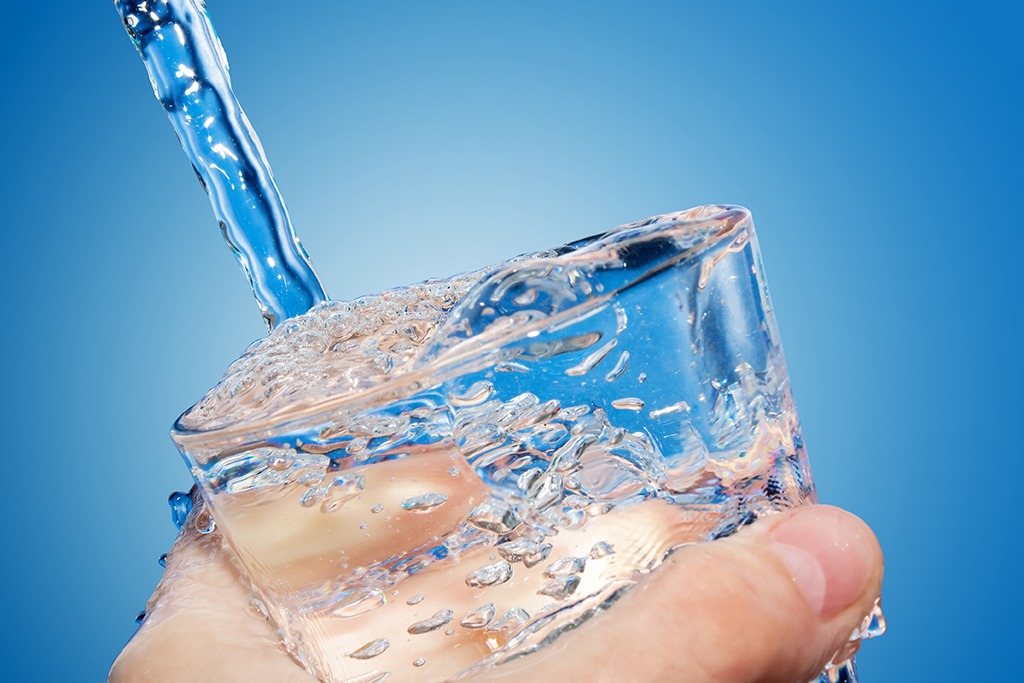
Most of us have morning rituals, but mine is probably stricter than most.
The first thing I do out of bed is to drink a tall glass of room-temperature water. I've just gone eight hours without drinking anything, and my body needs hydration to start functioning at its peak. Water is a critical part of the body's repair process. But I avoid ice water, for a reason. When you drink ice water, the body needs to send additional blood to the digestive system in order to heat the water to 98.6 degrees. There's some benefit to this process—heating the cold water burns a few additional calories. But it also slows digestion and diverts blood away from where I want it—in my muscles.
DON'T MISS: 50 Best Detox Waters
Eat Some Honey
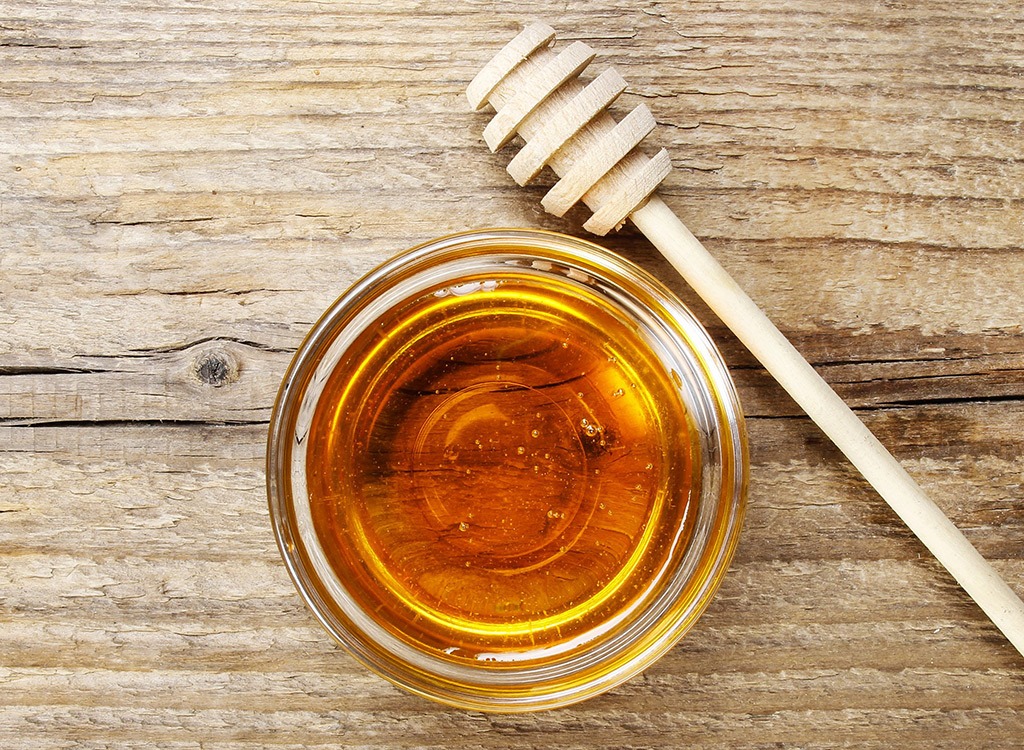
The second thing I do might really surprise you: I eat two spoonfuls of honey. Every day. I try to get manuka honey, which comes from New Zealand. It is a dark honey made by bees that feed on the manuka tree (or tea tree), and has been shown to have even greater antibacterial properties than regular honey.
I know what you're thinking: Honey is sugar. Well, yes, it is. But your body needs sugar. In particular, it needs fructose, the sugar found in fruits, some vegetables, and especially honey. What it doesn't need is processed sucrose, the stuff in chocolate, soda, or most energy drinks that gives you an instant sugar shot in the body, where you feel like "Wow!"
I don't like "wow." "Wow" is no good. If you have "wow" now, that means in thirty minutes you're going to have "woe."
Eat a "Power Bowl" for Breakfast
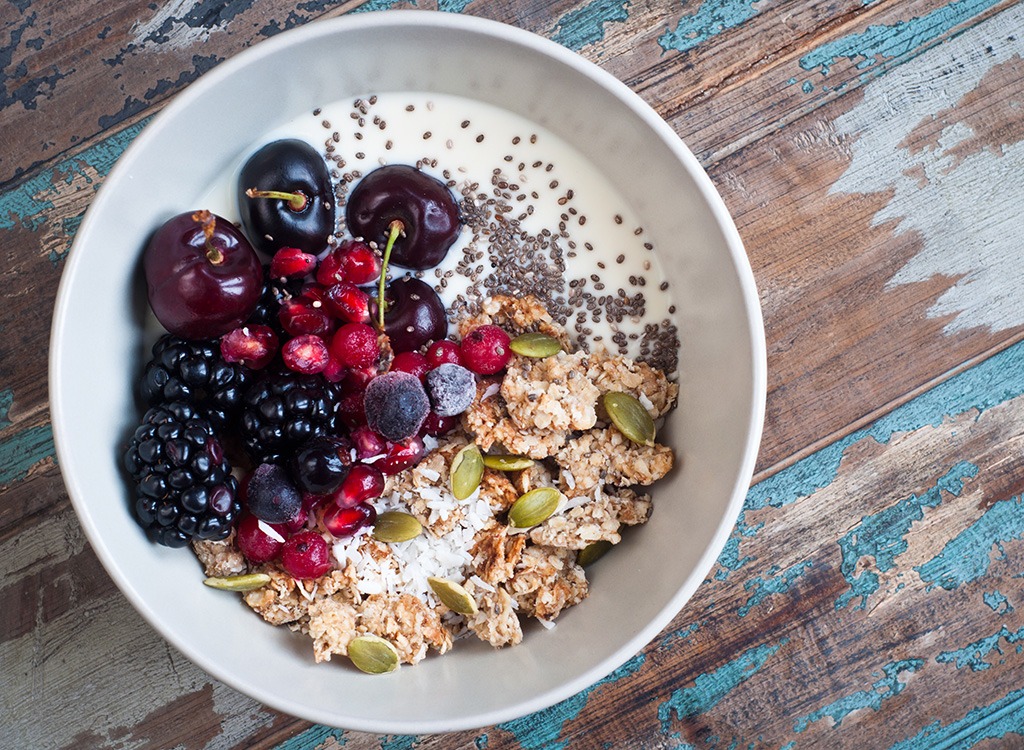
After a little stretching or some light calisthenics, I'm ready for breakfast. Most days I have what I call the Power Bowl, a normal-sized bowl I fill with a mixture of:
- Gluten-free muesli or oatmeal
- A handful of mixed nuts—almonds, walnuts, peanuts
- Some sunflower or pumpkin seeds
- Fruits on the side, or sliced up in the bowl, like banana and all kinds of berries
- A small scoop of coconut oil (I like it for the electrolytes and minerals)
- Rice milk, almond milk or coconut water
Have Breakfast #2 on Standby
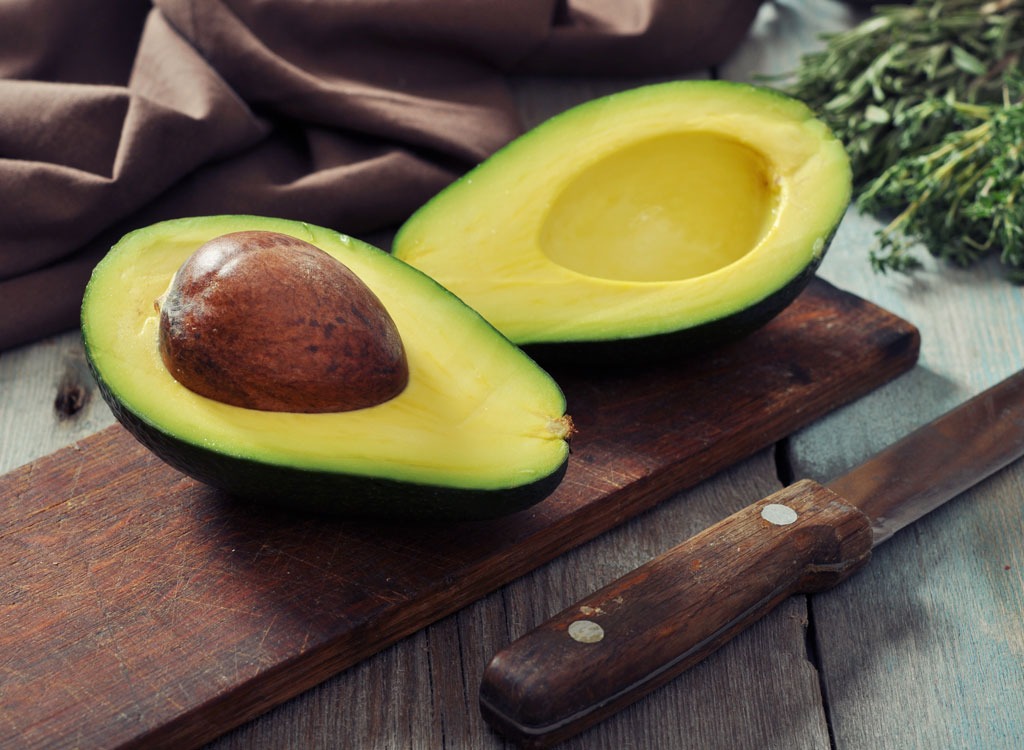
One bowl of these ingredients is generally enough for me. If I think that I will need something more—I rarely do—then I wait about twenty minutes and have a little gluten-free toasted bread, tuna fish, and some avocado. I love avocado; it's one of my favorites.
Pack Your Lunch with Carbs
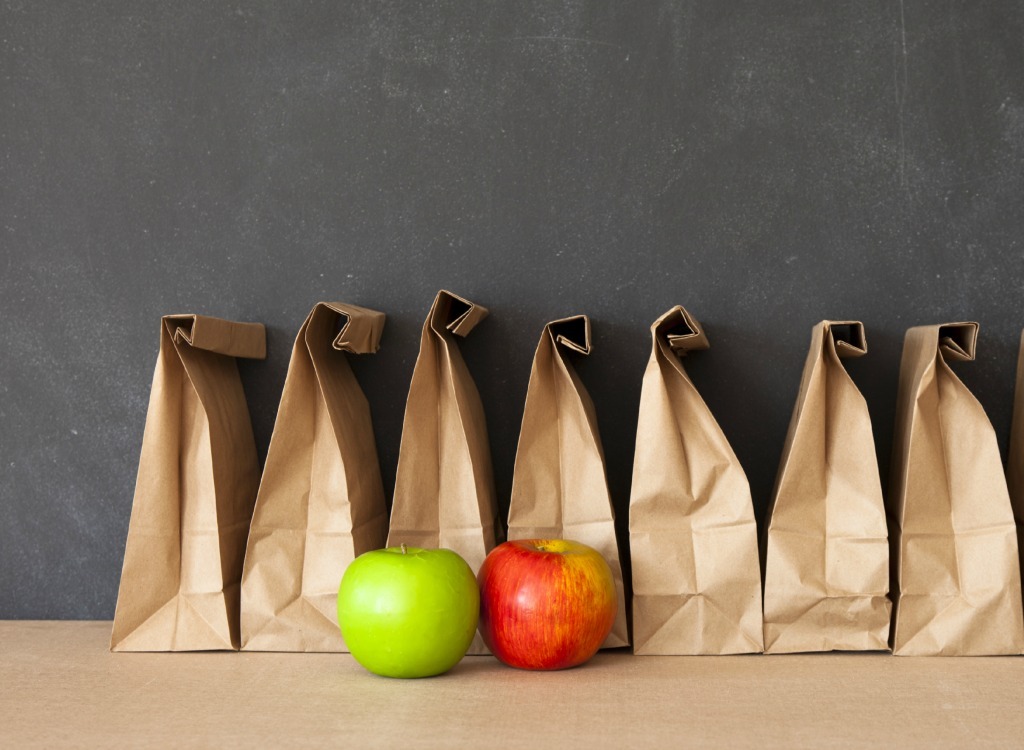
For me, a typical lunch is gluten-free pasta with vegetables. The pasta is made from quinoa or buckwheat. As for the vegetables, the selection is vast. Arugula, roasted peppers, fresh tomatoes, sometimes cucumber, a lot of broccoli, a lot of cauliflower, green beans, carrots. I combine the vegetables with the pasta and some olive oil and a bit of salt. (I should say that on match days when I know I'll have to practice around noon and play a match around three, I have a heavy protein with my lunch, as a foundation for the match. But in general, pasta is all I need.)
TIP: Like Djokovic, pair your carbs with high-protein foods, like any of these foods with more protein than an egg!
Drink It In When You're Working Out
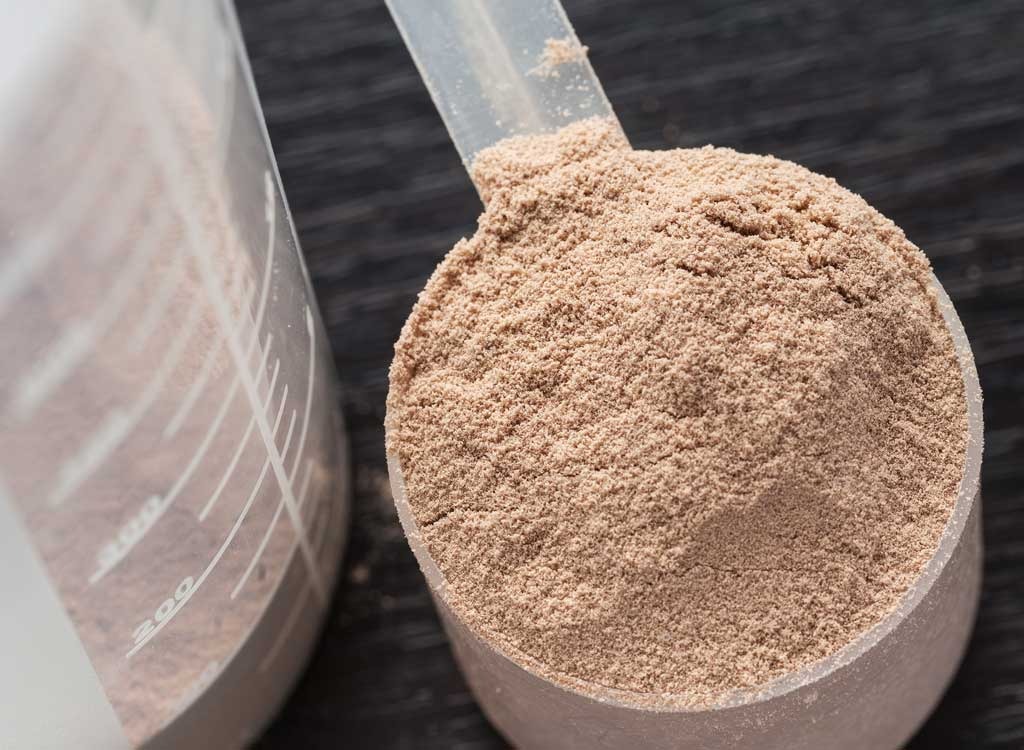
During practice, I go through two bottles of an energy drink containing fructose extract. It's not too heavy in the stomach, but allows me to replenish. The ingredients I look for in a drink are electrolytes, magnesium, calcium, zinc, selenium, and vitamin C. The magnesium and calcium help with heart and muscle function and prevent cramps. If it's a humid day, I also have a hydration drink with electrolytes because I lose a lot of liquids.
After practice, I have an organic protein shake made from water mixed with rice or pea protein concentrate and some evaporated cane juice. I don't drink whey or soy shakes. I find that, for me, this is the fastest way to replenish.
Snack Between Sets

Before a match, when I really want to fire up, I usually eat a power gel with twenty-five milligrams of caffeine. During the match, I eat dried fruits like dates. I have one or two teaspoons of honey. I always stick with sugars derived from fructose. Besides these examples, the vast majority of the sugar I consume comes from the training drinks I mentioned.
Have a Protein-Focused Dinner
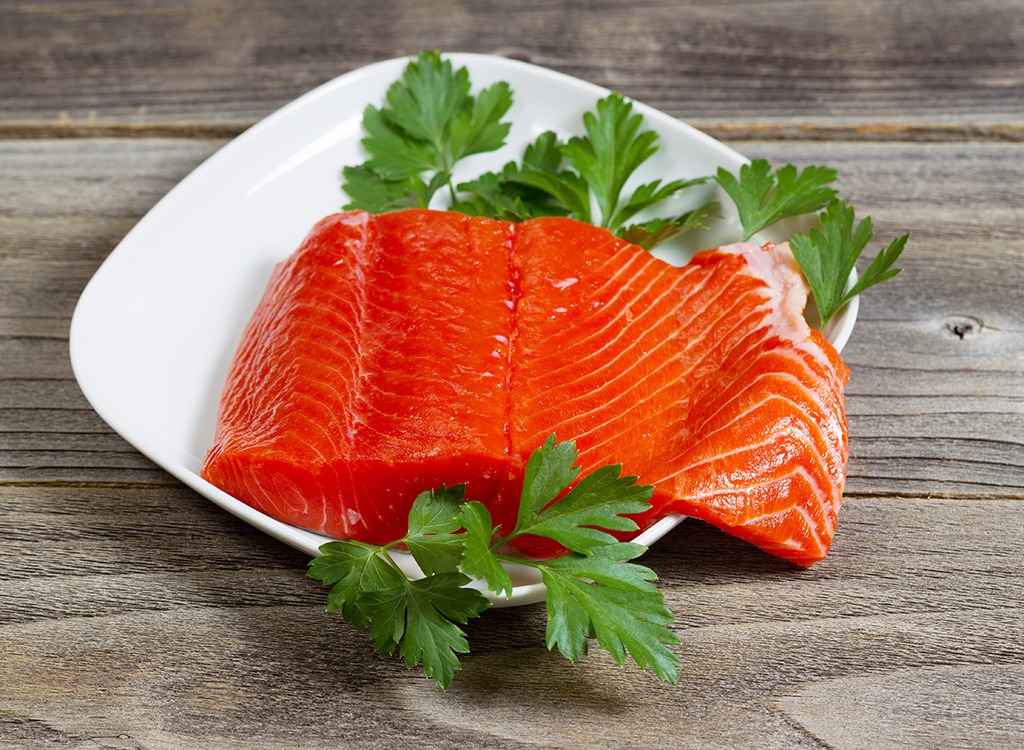
Later, when it's time for dinner, I eat protein in the form of meat or fish. That usually means steak, chicken, or salmon, as long as it's organic, grass-fed, free-range, wild, etc. I order meats roasted or grilled, and fish steamed or poached if possible. The closer a food is to nature, the more nutritious it is. I pair it with a steamed vegetable like zucchini or carrots. I may also have some chickpeas or lentils, or occasionally soup.
EAT LIKE DJOKOVIC—and discover how you can feel like a winner by changing your diet—with his exclusive meal plan in Serve to Win!
